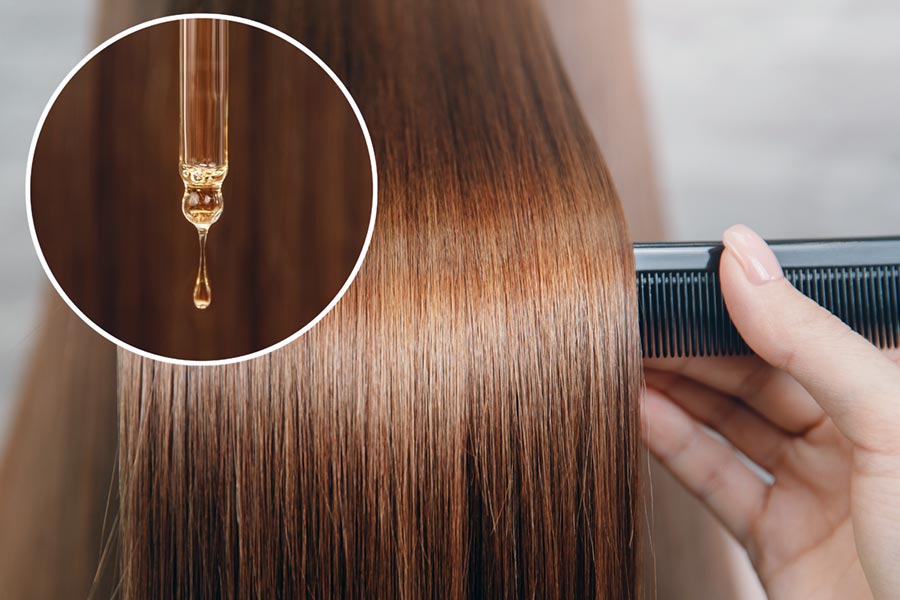Millions of people worldwide are affected by the perplexing world of hair loss, which is a universal concern caused by a multitude of factors. While genetic predisposition and hormonal imbalances are well-known causes, the role of nutrition, particularly vitamin deficiencies, in hair health cannot be overlooked. Among the myriad of essential nutrients, certain vitamins play pivotal roles in maintaining healthy hair growth and preventing hair loss. In this article, we delve into the correlation between vitamin deficiencies and hair loss, aiming to provide valuable insights for healthcare providers and patients alike.
Which Vitamin Deficiencies Cause Hair Loss?
Vitamins are crucial micronutrients that support various physiological functions in the body, including hair growth and maintenance. Several vitamins are directly linked to hair health, with deficiencies potentially leading to hair loss or thinning. While a balanced diet is essential for obtaining these vitamins, certain factors such as dietary restrictions, underlying health conditions, or inadequate absorption may predispose individuals to deficiencies.
Identifying the Culprit: Vitamin Deficiencies Associated with Hair Loss
1. Vitamin D: Vitamin D is given the gold emblem for keeping your skin, bones, immune system, and most importantly keeping your hair follicles happy and healthy. However, a Vitamin D deficiency can contribute to hair loss by disrupting the hair follicle’s growth cycle.
Vitamin D is in direct correlation with Keratinocytes, an imperative cell that is attributed to hair growth. Low levels of Vitamin D can lead to a low production of Keratinocytes which consequently stunts hair growth and leads to hair loss. Low levels of Vitamin D have also been associated with alopecia areata; a condition characterized by sudden hair loss in patches. (Amor et al., 2010)
2. Vitamin B12: B12 is a King Kong vitamin that plays a significant role in keeping your red blood cells in high production and in addition to being a lead role in DNA synthesis, regulating the nervous system, and many more!
B12 is not a direct cause of hair loss but, insufficient intake or impaired absorption of the vitamin will result in a deficit of proteins, red blood cell production, and will overall, indirectly affect hair follicle health through anemia, alopecia, and hair thinning/loss.
(Wimpole Clinic. (n.d.))
3. Vitamin A: Vitamin A is crucial for cell growth, differentiation, healthy skin, and hair. Excessive intake or deficiency can both contribute to hair loss. Vitamin A plays a crucial role in the hair growth cycle, particularly in the anagen phase of the hair growth cycle. This phase, also known as the growth phase, is when hair actively grows from the follicle. (National Center for Biotechnology Information, 2021)
A deficiency of vitamin A can lead to dry, brittle hair and increased susceptibility to hair loss, while excessive intake can also result in hair loss due to toxicity.
4. Vitamin E: Vitamin E, renowned for its antioxidant properties, plays a pivotal role in safeguarding hair follicles against oxidative stress, thereby fostering an environment conducive to healthy hair growth (Beoy et al., 2010). As an antioxidant, vitamin E scavenges free radicals that can cause damage to cell membranes, proteins, and DNA within hair follicles, which, if left unchecked, may lead to follicular dysfunction and subsequent hair loss (Packer et al., 2001).
Furthermore, vitamin E has been shown to enhance microcirculation in the scalp, thereby promoting the delivery of vital nutrients and oxygen to the hair follicles (Traber & Atkinson, 2007). This improved circulation supports the metabolic processes essential for hair growth, including cell proliferation and tissue repair.
Research suggests that a deficiency in vitamin E can disrupt these essential functions, potentially impairing hair growth and contributing to hair loss (Almohanna et al., 2019). Almohanna et al. (2019) conducted a study that revealed lower levels of vitamin E in individuals experiencing hair loss compared to those with healthy hair growth, underscoring the importance of adequate vitamin E levels in maintaining optimal hair health.
Vitamin deficiencies can significantly impact hair health and contribute to hair loss or thinning. As a pro tip, consider assessing patients for potential nutrient deficiencies, especially in cases of unexplained hair loss. Moreover, patients are encouraged to maintain a balanced diet rich in vitamins and minerals essential for optimal hair growth and overall well-being.
By addressing underlying vitamin deficiencies, individuals can take proactive steps towards preserving their hair health and achieving luscious locks. Part of being proactive as a provider also starts with the right prescription for your patient that will not only reduce hair loss but will also assist in the improvement of the overall health of your hair, scalp, and confidence.
At Carie Boyd Pharmaceuticals, your precision compounding partner, we understand the unique challenges individuals face when dealing with hair loss. That’s why we offer personalized solutions tailored to meet the specific needs of each patient. Our process begins with comprehensive consultations with our board-certified pharmacist, who provides expert advice to help you select the most effective treatment options for your patients.
With a focus on innovation and quality, we have developed a range of hair loss medications designed to address various types and degrees of hair loss. From convenient capsules to lightweight and non-greasy topical solutions, our formulations cater to diverse preferences and lifestyles.
To learn more about our hair regrowth solutions and how they can benefit your patients, see our Hair Regrowth products.
Take the first step towards restoring confidence and vitality with Carie Boyd Pharmaceuticals!
References:
- Amor, K. T., Rashid, R. M., & Mirmirani, P. (2010). Does D matter? The role of vitamin D in hair disorders and hair follicle cycling. Dermatology online journal, 16(2), 3.
- Rushton DH. Nutritional factors and hair loss. Clin Exp Dermatol. 2002;27(5):396-404.)
- Semba RD. The role of vitamin A and related retinoids in immune function. Nutr Rev. 1998;56(1 Pt 2):S38-48.)
- Almohanna, H. M., Ahmed, A. A., Tsatalis, J. P., & Tosti, A. (2019). The Role of Vitamins and Minerals in Hair Loss: A Review. Dermatology and Therapy, 9(1), 51–70. https://doi.org/10.1007/s13555-018-0278-6
- Beoy, L. A., Woei, W. J., & Hay, Y. K. (2010). Effects of tocotrienol supplementation on hair growth in human volunteers. Tropical Life Sciences Research, 21(2), 91–99.
- Packer, L., Weber, S. U., Rimbach, G., & Arthur, J. R. (2001). Antioxidant activities of tocotrienols in different biological systems. Journal of Agricultural and Food Chemistry, 49(11), 5165–5170.
- Traber, M. G., & Atkinson, J. (2007). Vitamin E, antioxidant and nothing more. Free Radical Biology and Medicine, 43(1), 4–15. https://doi.org/10.1016/j.freeradbiomed.2007.03.024
- Wimpole Clinic. (n.d.). Does Vitamin B12 Deficiency Cause Hair Loss? [Blog post]. Retrieved from https://wimpoleclinic.com/blog/does-vitamin-b12-deficiency-cause-hair-loss-expert-review/.
- National Center for Biotechnology Information. (2021). Vitamin A and hair loss: A comprehensive review. PubMed Central. https://www.ncbi.nlm.nih.gov/pmc/articles/PMC9324272/

